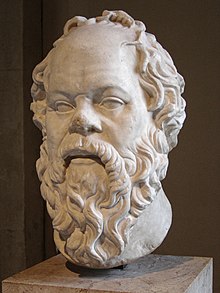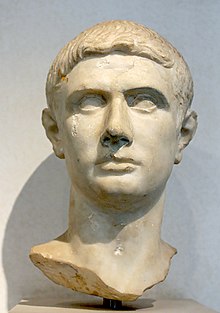Last year I tried to complete "Les Miserables" as part of a year-long read. I had barely started the book before life got in the way and I wasn't able to finish the story. This year I am determined to get through the entire thing. Here is the post I made at the beginning of my read and here is the one for Weeks 4 & 5. Below are notes to catalogue my read. At the moment it's mostly diction and events and persons I'm unfamiliar with. As I read further I hope to make posts filled with questions and insights into characters and plot points. Do not read this if you don't want the book to be spoiled.
Start from the Beginning
Weeks 8 and 9
 |
| Frans Hals circa 1649-1700 |
 |
| Author unknown 1665 |
 | |
|
Syllogism - A form of deductive reasoning consisting of a major premise, a minor premise and a conclusion. Ex. "No foxes are birds" "All parrots are birds" "No parrots are foxes"
Madeira wine - A fortified Portugese wine made in the Madeira islands. It's produced in a variety of styles ranging from dry wines which can be consumed on their own as an apertif, to sweet wines more usually consumed with dessert.
Hetaera - An ancient Greek courtesan or concubine, especially one of a special class of cultivated female companions
 |
| Artist unknown |
Solomon - Also called jedidah. He was a walthy and wise king of Israel and a son of David. He is credited as the builder of the first Temple in Jerusalem. He is portrayed as wise but human and who sinned, turning away from Yahweh.
Amor omnibus idem - Love them all
 |
| Artist unknown |
 |
| Copy of Ktesilas Artist unknown |
 |
| A bust of Socrates in Louvre |
Manon Lescaut - An opera in fourt acts by Giacomo Puccini. The story is based on a novel by the Abbe Prevost.
Prometheus - A Titan from Greek Mythology, known as the deity who was the creator of mankind and its greatest benefactor. He stole fire from Mount Olympus and gave it to mankind. As a result he was punished by Zeus and chained to a mountain. Every day an eagle at his liver and every night it grew back.
Goliath - A giant Philistine warrior defeated by David, the future king of Israel.
Polyphemus - A Cyclops from the "Odyssey". The son of Poseidon and Thoosa. He was a man-eater and starts devouring Odysseus' men. They sneak out with the sheep and Odysseus blinds him by outsmarting him.
 |
| The Chandos Portrait authenticity unconfirmed |
Caliban - One of the main protagonists in William Shakespeare's "The Tempest" He was the son of the witch Sycorax.
Fustian - A coarse sturdy cloth made of cotton and flax
Blackguardism - A foul-mouthed person; a scoundrel, a thoroughly unprincipled person.
Mademoiselle de Scuderi - A novella first published in 1819. Written by ETA Hoffman and is regarded as one of his best. It was an immediate commercial and critical success. This was mostly due to the suspenseful plot and interesting descriptions of life, places and people.
"Pamela" or "Virtue Rewarded" - An epistolary novel (novel composed of a series of letteers) written by Samuel Richardson, first published in 1740. It tells the story of a beautiful 15-year old maidservant named Pamela Andrews, whose nobleman master, Mr. B, makes unwanted advances towards her after the death of his mother, whose maid she was since age 12.
Physiognomist - A person who judges human character based on facial features. Divination based on facial features.
 |
| Duke of Otranto, Joseph Fouche |
Legion d'honneur - The highest French order for military and civil merits, established in 1802 by Napoleon Bonaparte. The order is divided into five degrees of increasing distinction: Knight, Officer, Commander, Grand Officer, Grand Cross.
Grand Cross - The highest grade in many orders of knighthood. Sometimes they are referred to as "Commanders Grand Cross", "Nights Grand Cross", or just "Grand Crosses".
Recondite - Little known or secret
Vetch - Any of several climbing plants of the legume family, bearing pealike flowers, esp. Vicia sativa, cultivated for forage and soil improvement
Barbary - A region of northern Africa on the Mediterranean coast between Egypt and the Atlantic Ocean. Settled by Berbers in the 2nd millennium, it was conquered by Arabs in the 7th century. From the 16-19th c it was used as a base by pirates who raided ships in the Mediterranean and exacted tribute from the Ruopean powers trading in the area.
"The supreme happiness in life is the assurance of being loved; of being loved for oneself , even in spite of oneself."
"Soul gropes for soul and finds it."
"One would not exchange one's darkness for all light."
"We are radiant in our darkness."Faubourg - A district lying outside the original city limits of French-speaking city of a city with French heritage.
Savogards - A native of Savoy.
Calumny - A false statement maliciously made to injure another's reputation; slander; the utterance of maliciously false statements.
"Animals are nothing but the portrayal of our virtues and vices made manifest to our eyes, the visible reflections of our souls."
Educable - capable of being educated or taught.
Garde Champetre - A garde champêtre (rural guard) is the combination of a forest ranger, game warden and police officer in certain rural communes in France. Their job is to report to the local mayor. Many of these officers wear green uniforms and many carry firearms. They fall under the general supervision of the Gendarmerie.
 |
| Marble bust in National Museum of Rome |
 |
| By Achille Deveria 19thC |
 |
| By Karl Vogel Von Vogelstein ca1810 |
Cosmogony - Any scientific theory concerning the coming into existence (or origin) of either the cosmos (or universe), or the so-called "reality" of sentient beings
Gens Sans Aveu - Vagabonds
Law-Scrivener - A person who writes a document for another, usually for a fee
Louis d'or - The Louis d'or is any number of French coins first introduced by Louis XIII n 1640. The name derives from the depiction of the portrait of King Louis on one side of the coin; the French royal coat of arms is on the reverse. The coin was replaced by the French franc at the time of the revolution and later the similarly-valued Napoleon, although a limited number of Louis were also minted during the "Bourbon Restoration" under Louis XVIII.
"No one is more avidly curious about other people's doings than those persons whom they do not concern."
Fiacre - A small hackney coach
"An old woman who lived in the house taught her the art of living in penury. There are two stages - living on little, and living on nothing. They are like two rooms, the first dark, the second pitch-black."
"Winter! No warmth, no light, no midday morning merging into evening, fog, twilight and nohting to be clearly seen through the misted window. The sky had become a grating, the day a cellar, the sun a poor man at the door."Miliary - Accompanied by papules or vesicles resembling millet seeds.
"Paupers cannot reach the end of their abode, or of their destiny, except by crouching ever lower."

No comments:
Post a Comment